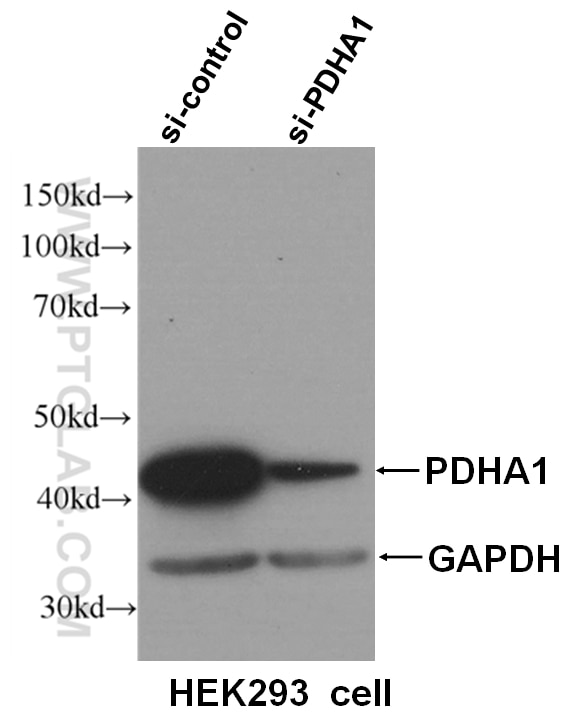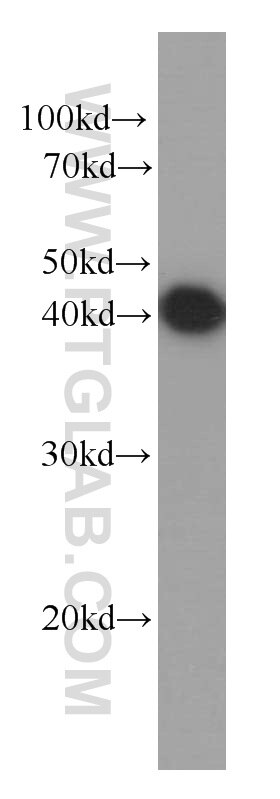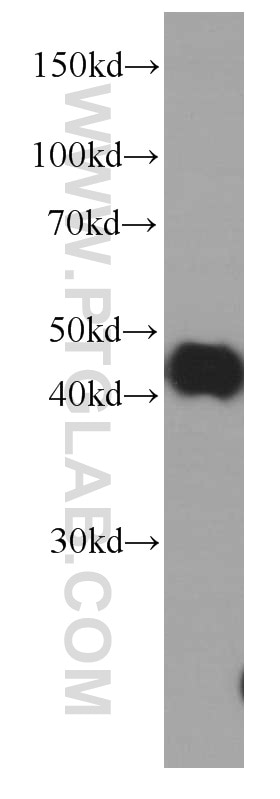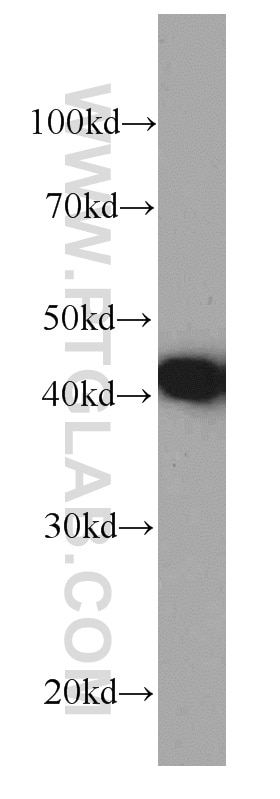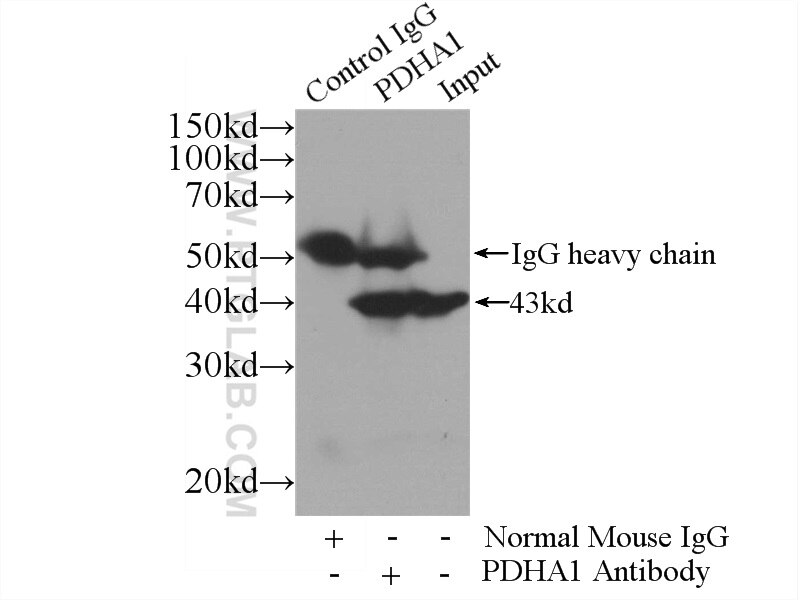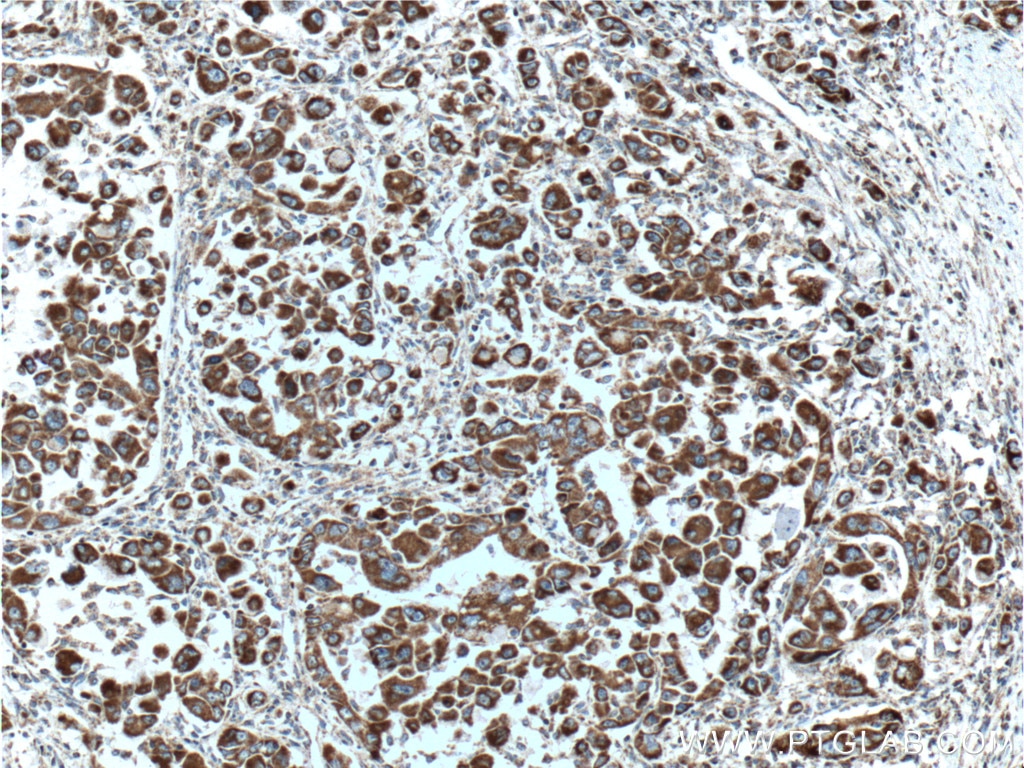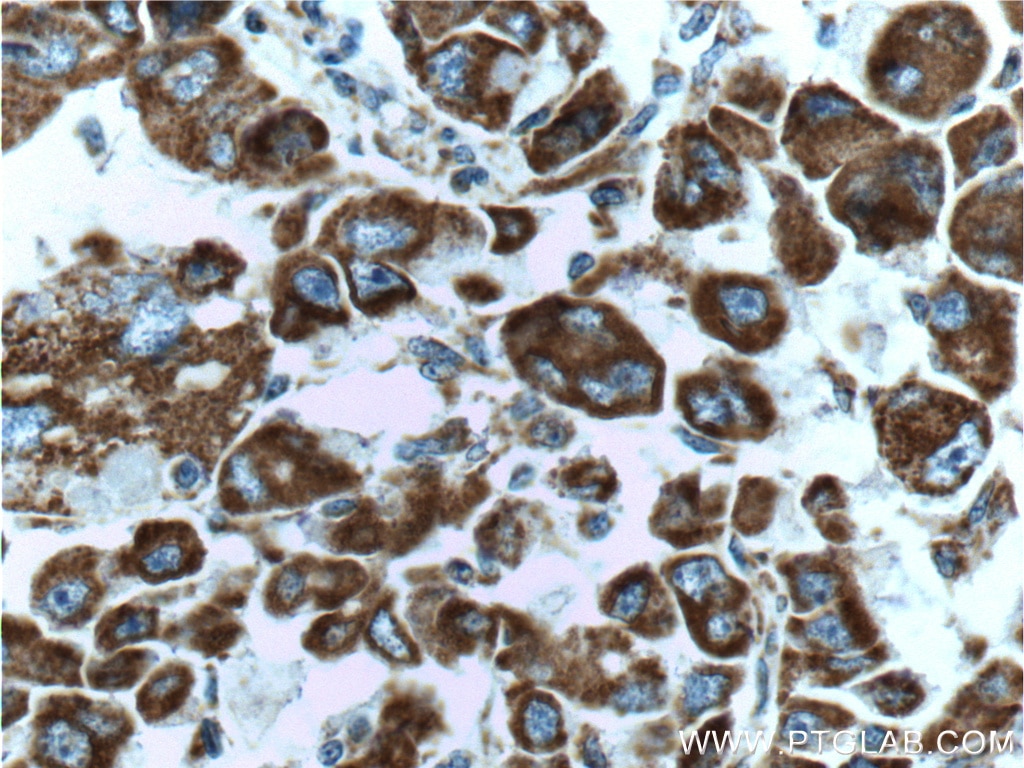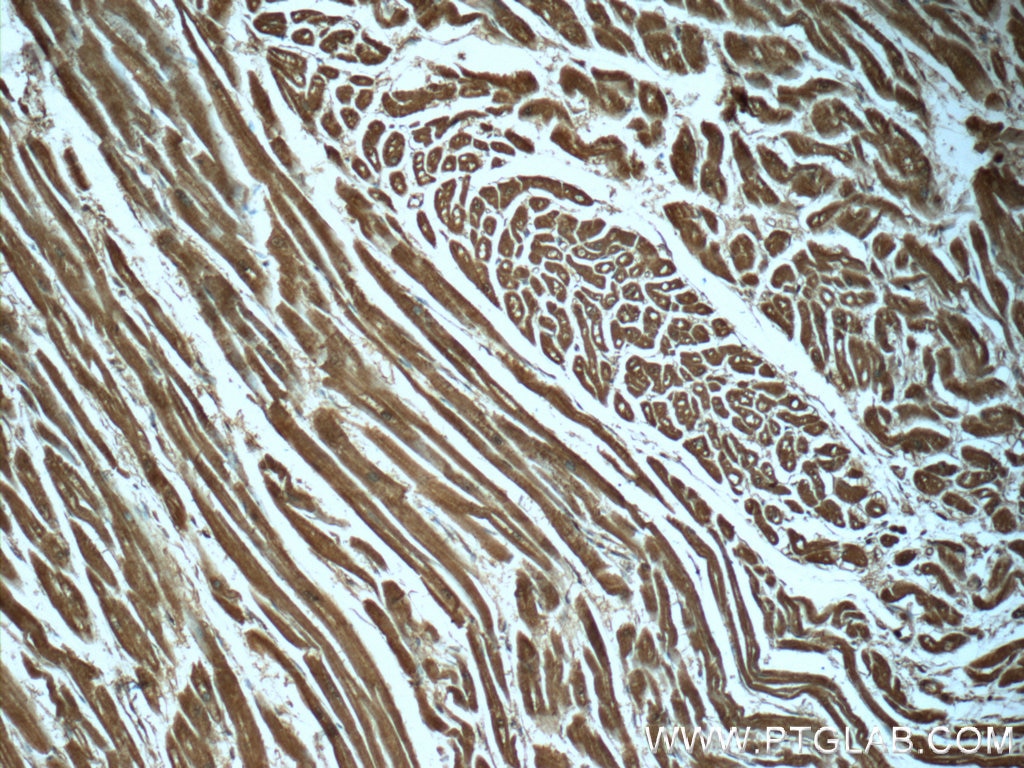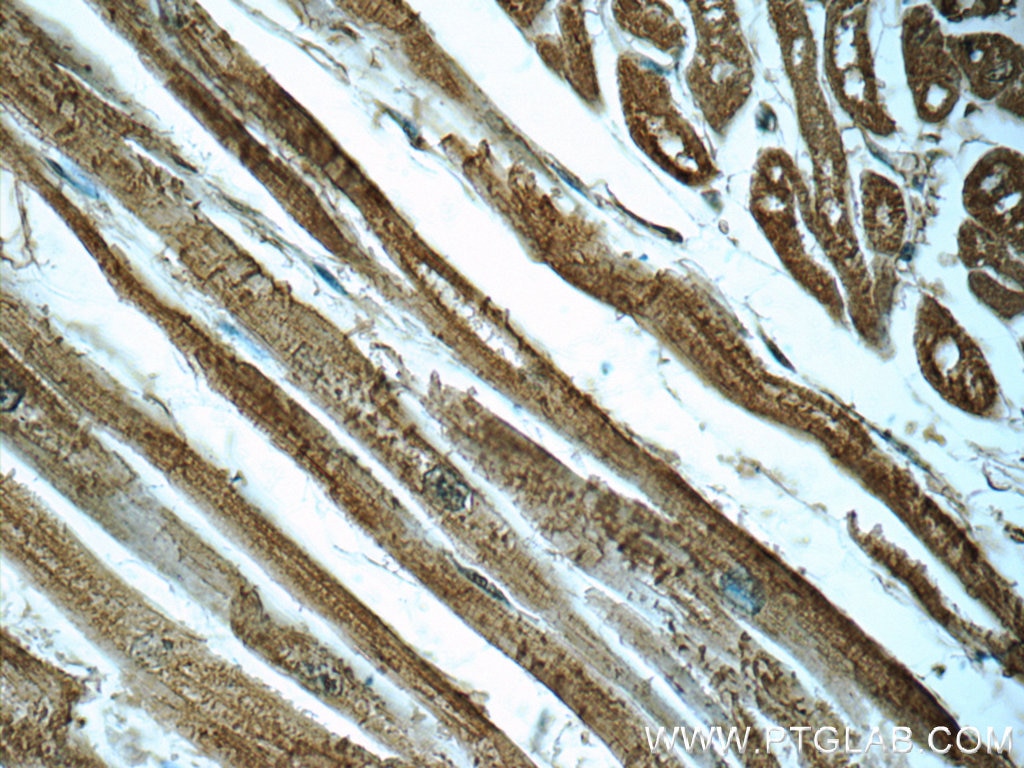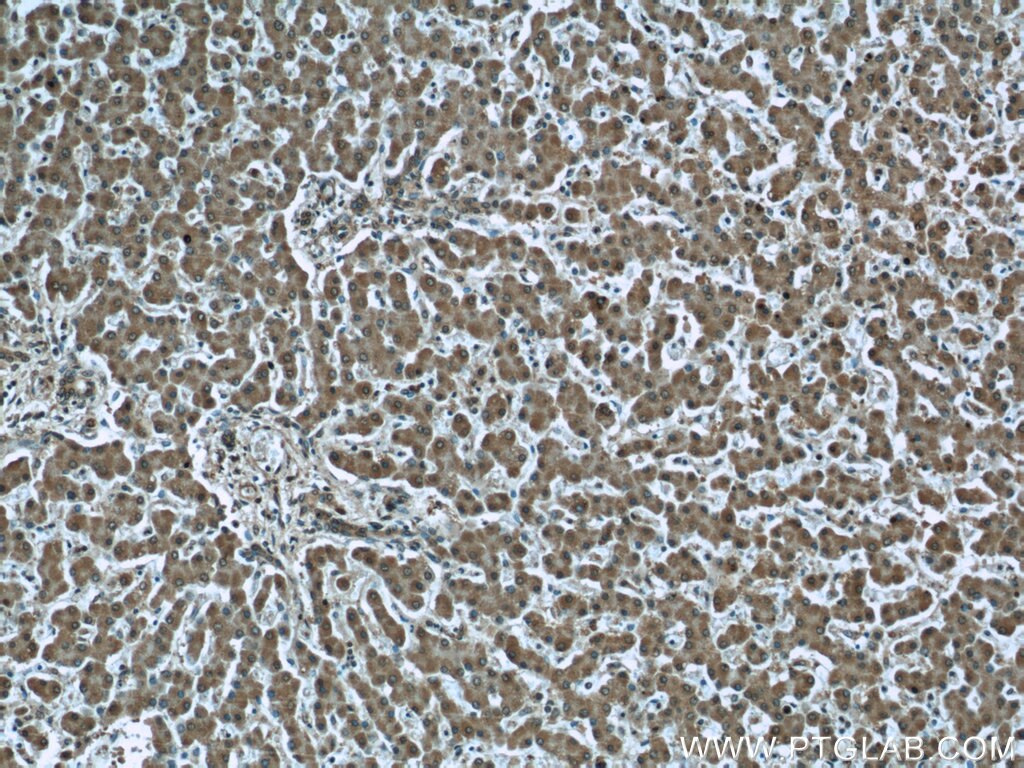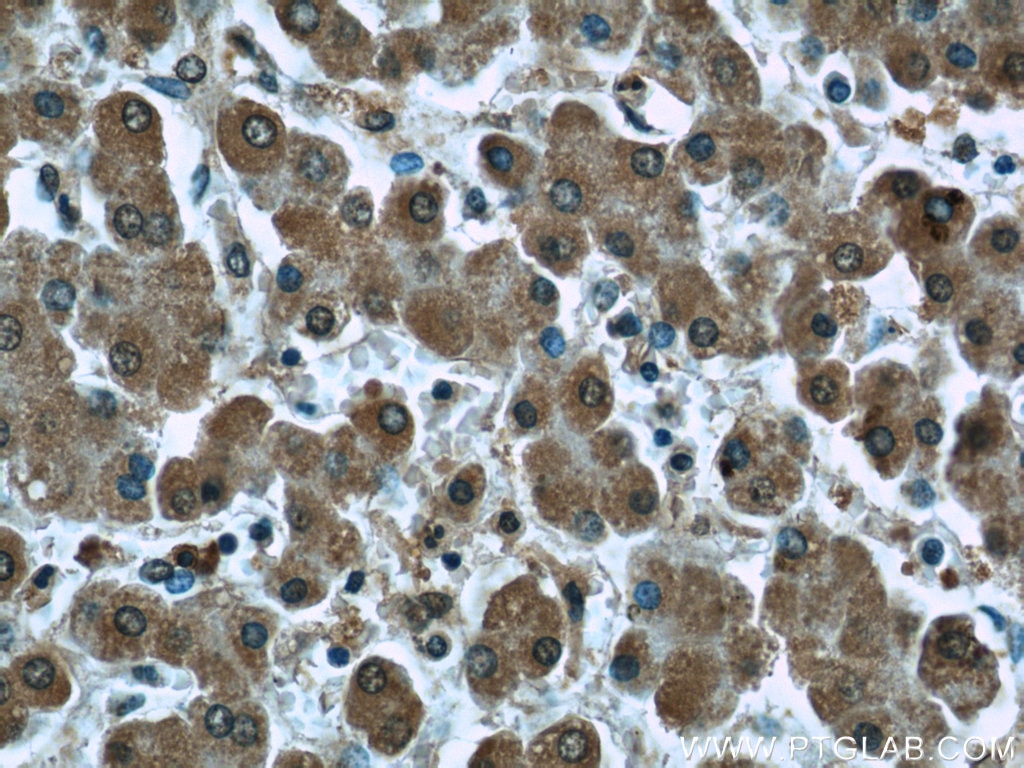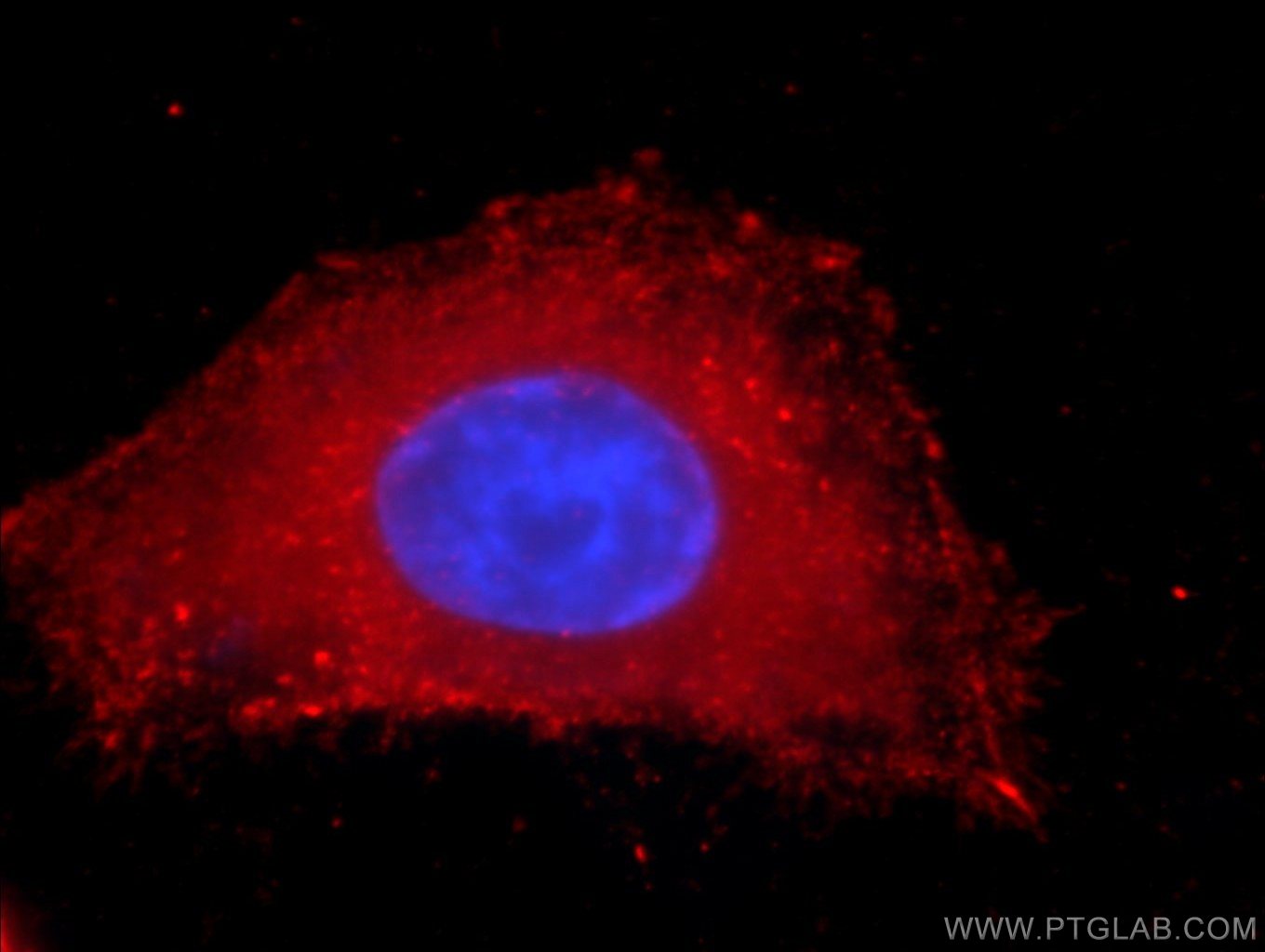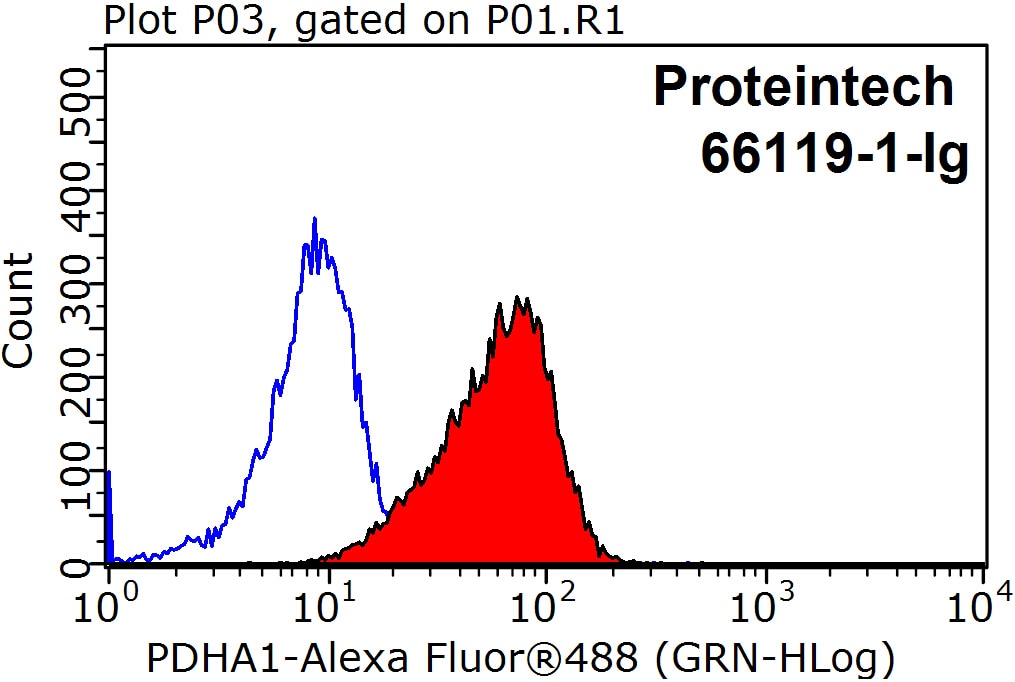- Featured Product
- KD/KO Validated
PDH E1 Alpha Monoklonaler Antikörper
PDH E1 Alpha Monoklonal Antikörper für FC, IF, IHC, IP, WB, ELISA
Wirt / Isotyp
Maus / IgG2a
Getestete Reaktivität
human
Anwendung
WB, IP, IHC, IF, FC, ELISA
Konjugation
Unkonjugiert
CloneNo.
2B3C10
Kat-Nr. : 66119-1-Ig
Synonyme
Galerie der Validierungsdaten
Geprüfte Anwendungen
| Erfolgreiche Detektion in WB | HEK-293-Zellen, HEK293 cells |
| Erfolgreiche IP | HEK-293-Zellen |
| Erfolgreiche Detektion in IHC | humanes Leberkarzinomgewebe, humanes Herzgewebe, humanes Lebergewebe Hinweis: Antigendemaskierung mit TE-Puffer pH 9,0 empfohlen. (*) Wahlweise kann die Antigendemaskierung auch mit Citratpuffer pH 6,0 erfolgen. |
| Erfolgreiche Detektion in IF | HepG2-Zellen |
| Erfolgreiche Detektion in FC | HepG2-Zellen |
Empfohlene Verdünnung
| Anwendung | Verdünnung |
|---|---|
| Western Blot (WB) | WB : 1:5000-1:50000 |
| Immunpräzipitation (IP) | IP : 0.5-4.0 ug for 1.0-3.0 mg of total protein lysate |
| Immunhistochemie (IHC) | IHC : 1:400-1:1600 |
| Immunfluoreszenz (IF) | IF : 1:20-1:200 |
| Durchflusszytometrie (FC) | FC : 0.20 ug per 10^6 cells in a 100 µl suspension |
| It is recommended that this reagent should be titrated in each testing system to obtain optimal results. | |
| Sample-dependent, check data in validation data gallery | |
Veröffentlichte Anwendungen
| KD/KO | See 1 publications below |
| WB | See 7 publications below |
| IF | See 1 publications below |
| IP | See 1 publications below |
Produktinformation
66119-1-Ig bindet in WB, IP, IHC, IF, FC, ELISA PDH E1 Alpha und zeigt Reaktivität mit human
| Getestete Reaktivität | human |
| In Publikationen genannte Reaktivität | human |
| Wirt / Isotyp | Maus / IgG2a |
| Klonalität | Monoklonal |
| Typ | Antikörper |
| Immunogen | PDH E1 Alpha fusion protein Ag12556 |
| Vollständiger Name | pyruvate dehydrogenase (lipoamide) alpha 1 |
| Berechnetes Molekulargewicht | 43 kDa |
| Beobachtetes Molekulargewicht | 43 kDa |
| GenBank-Zugangsnummer | BC002406 |
| Gene symbol | PDHA1 |
| Gene ID (NCBI) | 5160 |
| Konjugation | Unkonjugiert |
| Form | Liquid |
| Reinigungsmethode | Protein-A-Reinigung |
| Lagerungspuffer | PBS mit 0.02% Natriumazid und 50% Glycerin pH 7.3. |
| Lagerungsbedingungen | Bei -20°C lagern. Nach dem Versand ein Jahr lang stabil Aliquotieren ist bei -20oC Lagerung nicht notwendig. 20ul Größen enthalten 0,1% BSA. |
Hintergrundinformationen
PDHA1(Pyruvate dehydrogenase E1 component subunit alpha, somatic form, mitochondrial) is also named as PHE1A.It is one of the 3 enzymes of the pyruvate dehydrogenase complex which is a nuclear-encoded mitochondrial matrix multienzyme complex that provides the primary link between glycolysis and the tricarboxylic acid (TCA) cycle by catalyzing the irreversible conversion of pyruvate into acetyl-CoA(PMID:7853374).It has 4 isoforms produced by alternative splicing.Defects in PDHA1 are a cause of pyruvate dehydrogenase E1-alpha deficiency (PDHAD) and X-linked Leigh syndrome (X-LS).
Protokolle
| Produktspezifische Protokolle | |
|---|---|
| WB protocol for PDH E1 Alpha antibody 66119-1-Ig | Protokoll herunterladen |
| IHC protocol for PDH E1 Alpha antibody 66119-1-Ig | Protokoll herunterladen |
| IF protocol for PDH E1 Alpha antibody 66119-1-Ig | Protokoll herunterladen |
| IP protocol for PDH E1 Alpha antibody 66119-1-Ig | Protokoll herunterladen |
| Standard-Protokolle | |
|---|---|
| Klicken Sie hier, um unsere Standardprotokolle anzuzeigen |
Publikationen
| Species | Application | Title |
|---|---|---|
Nat Commun Lin28/let-7 axis regulates aerobic glycolysis and cancer progression via PDK1. | ||
J Cell Biol PINK1 disables the anti-fission machinery to segregate damaged mitochondria for mitophagy. | ||
Cell Rep A LON-ClpP Proteolytic Axis Degrades Complex I to Extinguish ROS Production in Depolarized Mitochondria. | ||
Toxicol Appl Pharmacol Sodium cantharidate induces Apoptosis in breast cancer cells by regulating energy metabolism via the protein phosphatase 5-p53 axis. | ||
Immunobiology The mTOR-glycolytic pathway promotes T-cell immunobiology in oral lichen planus. | ||
Nat Metab MAPK signalling-induced phosphorylation and subcellular translocation of PDHE1α promotes tumour immune evasion.
|
